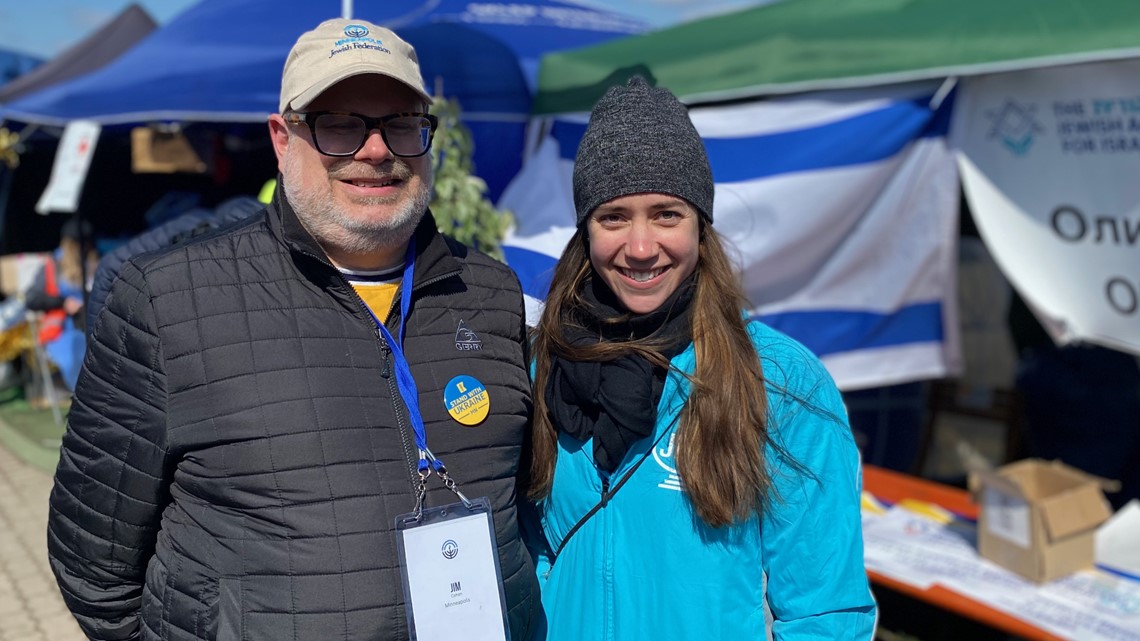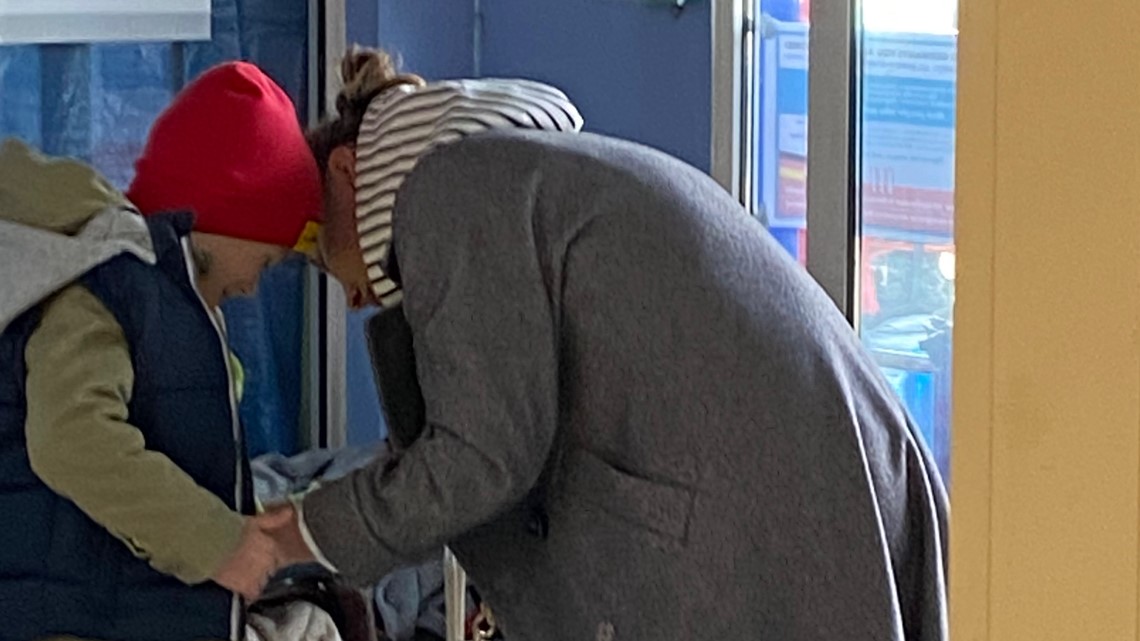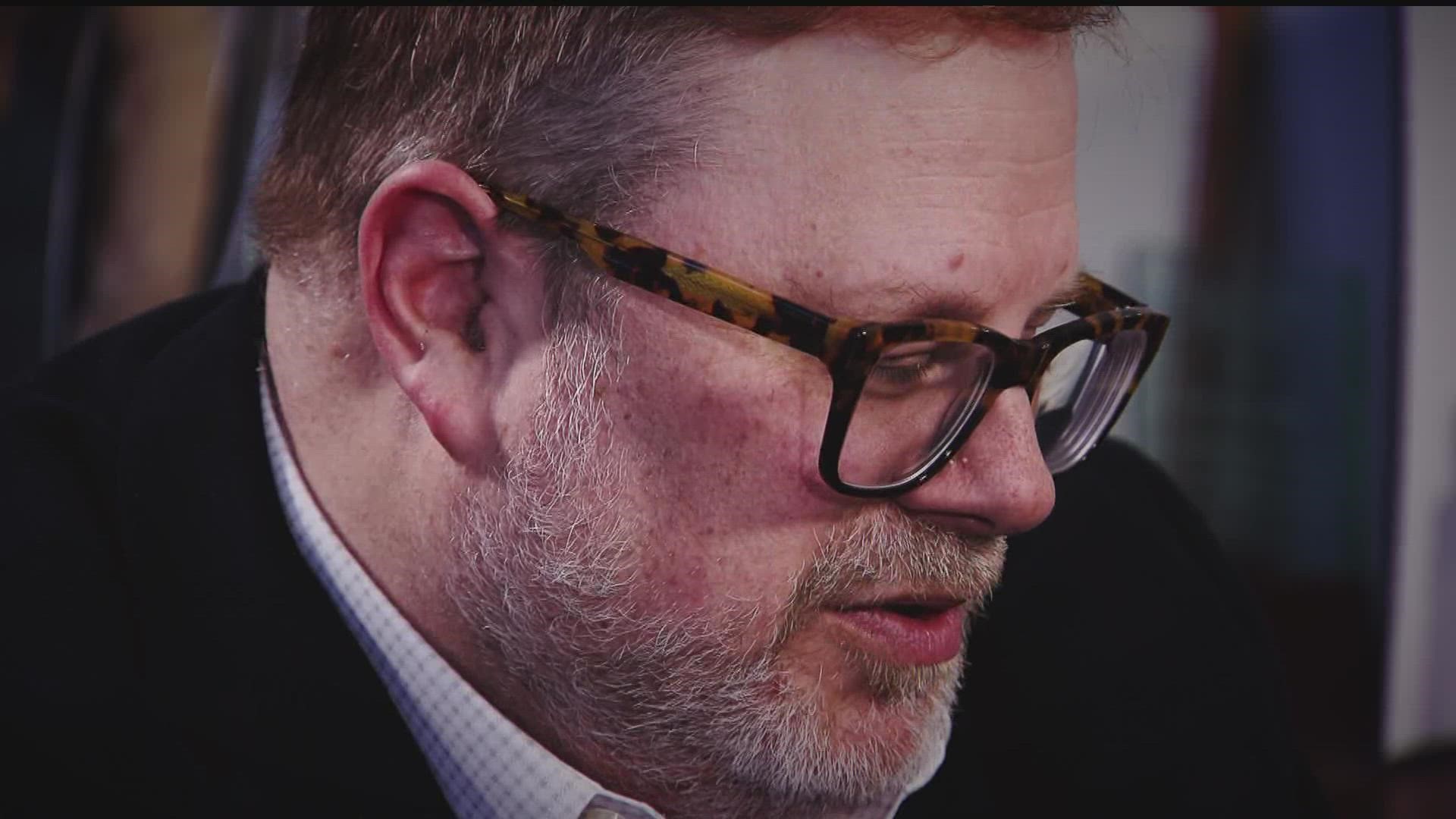MINNEAPOLIS — James Cohen returned this week from the Polish-Ukrainian border with mental images he'll never forget.
The radiant smile of a young Ukrainian girl boarding a bus to safety in Warsaw.
A 20-year-old woman determined to make a better life for herself after her elderly grandparents stayed behind in a war zone.
A mother fitting her son with a donated winter coat.
"The things I saw, and the looks on the faces of people I saw, were things I never expected to see in my lifetime," said Cohen, the CEO of the Minneapolis Jewish Federation. "That really struck me, that the war plays no favorites. That's why it's so important that organizations like ours are there to support people of all walks of life in a pretty desperate situation."


Along with partner organizations, Cohen spent a few days in Eastern Europe on an emergency mission to Medyka, a border crossing in southeastern Poland about an hour and a half from Lviv, Ukraine. At the border, Cohen described a frantic effort to welcome exhausted Ukrainian refugees, with aid workers offering food, coffee, children's toys, and information about bus routes throughout Eastern Europe.
The Minneapolis Jewish Federation, which has already raised more than $1.2 million for Ukrainian relief, also brought 200 pounds of essential supplies to the border, ranging from over-the-counter medicine to diapers. In all, Jewish federations across the U.S. have raised more than $40 million, supplementing the work of many worldwide relief agencies offering assistance to the Ukrainians.
"I think the energy that the volunteers are bringing, that's really felt by the refugees as they come across the border. You can sense the gratitude. Their whole body takes a different shape," Cohen said, "and they can actually think about what the future is going to be."


Although organizations like the Minneapolis Jewish Federation are helping Ukrainians of all faiths and backgrounds, they are particularly disturbed by the plight of Jewish refugees, given the region's painful history of anti-Semitism. After the pogroms of the 19th and early-20th centuries, the Holocaust, and brutal repression under the Soviets, Ukraine's Jewish community has worked hard in recent years to rebuild, reaching a population of at least 200,000 prior to the Russian invasion.
"It has really grown back since the Second World War, and you have thriving Jewish communities now," Cohen said. "To see that threatened for a second, third, fourth time in the history of these communities, is really, really tragic."
For example, while in Warsaw this week, Cohen met 86-year-old Bella, a Holocaust survivor from Odessa, Ukraine — once home to one of the world's largest Jewish populations. Starting in 1941, she lived through the German invasion of the Soviet Union and its ensuing terror, only to find herself in a similar situation eight decades later.
"We're talking about the second time she had to abandon her home in Odessa. She survived a concentration camp, then survived a Gulag after war was over. And this poor lady now has to flee her home again," Cohen said. "The fact that we're able to help someone like that is very meaningful to me."
But the work continues.
While on the ground in Medyka, Poland, Cohen and other aid workers began learning of the atrocities in Bucha outside of Kyiv, about 384 miles away from their border crossing.
"I'm afraid the number of refugees and the need is only going to grow exponentially," Cohen said. "The pictures are absolutely horrifying."
Even in these dark times, however, Cohen draws optimism from the resiliency of the Ukrainian refugees.
"I saw children who did not know the next time they were going to see their father, and elderly ladies and gentlemen who probably never thought in their wildest imagination they would have to make this trip," Cohen said. "I saw a lot of world weariness, but I also saw a lot of hope... And that sense of hope is something I'm glad to bring back, in addition to a call for action that we're nowhere near done yet with helping."
Watch more local news:
Watch the latest local news from the Twin Cities in our YouTube playlist:

